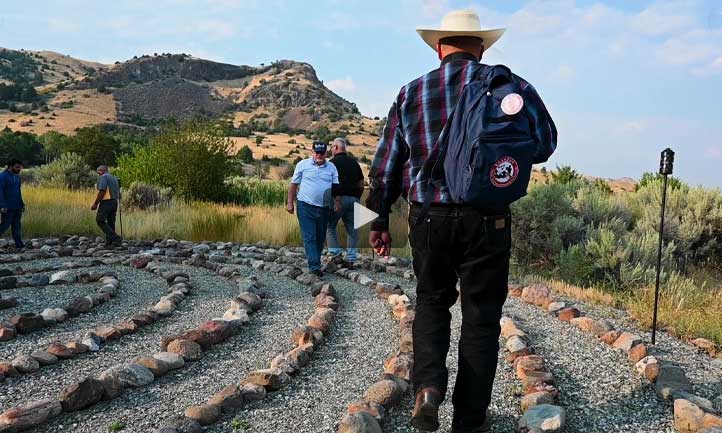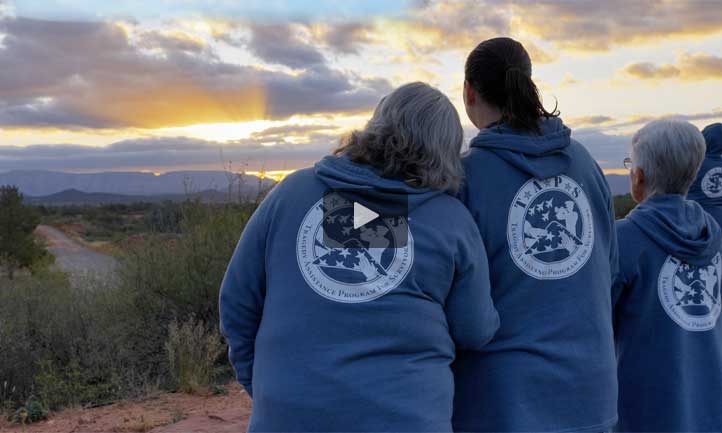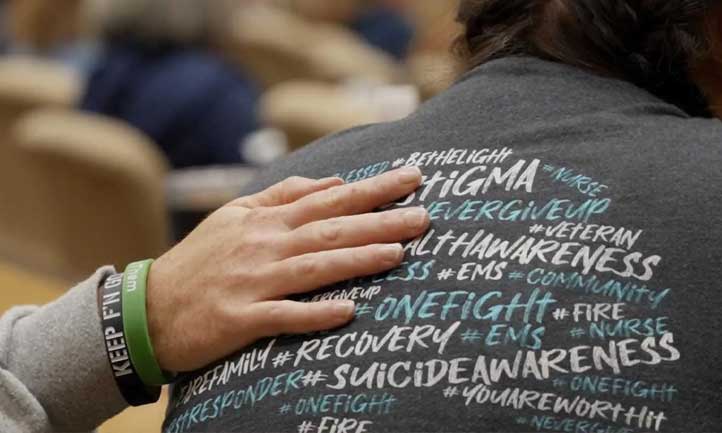10 Things We Know to Be True about Suicide Loss
Author: TAPS
Losing someone you love to suicide comes with complex grief. You might catch yourself asking why or what if or even wrestling with guilt, thinking you could have done something more — "If only I would have..." or "I should have known something was wrong." These questions, though raw and overwhelming — especially in grief — and processing these questions over time and with support can help with a deeper understanding that can eventually lead to healing and growth after your loss. This is just one of the 10 things we, at the Tragedy Assistance Program for Survivors (TAPS), know to be true about suicide loss.
If you’ve lost a family member, friend, or battle buddy to suicide — either during or after their military service — TAPS is your safe place to navigate the complex issues, emotions, and questions that accompany suicide grief. We’ve stood where you now stand, and these are some of the valuable lessons we have learned about suicide loss.
- You are not alone. Grief can feel isolating, but you don’t have to walk the journey alone. We, at TAPS, have been down this path, and we are here for you through each phase of suicide grief — stabilization, grief work, and post-traumatic growth.
Watch Video 1 » - You will not always feel this much pain. As time passes, and with postvention care, the hurt you feel right now can evolve and change. The intense, all-consuming emotional pain will not always feel like it does now. It can ease and soften with grief work and the passing of time.
Watch Video 2 » - Most people who die by suicide do not want to die. They want to end their pain and cannot see another option. The pain that brought your loved one to end their life kept them from thinking clearly and fully understanding the heartbreak their suicide would cause you and others close to them.
Watch Video 3 » - It was not your fault. Suicide is rarely the result of a singular issue, interaction, conversation, or contributor. Usually, it involves multiple, complex factors that lead to a devastating event.
Watch Video 4 » - You cannot prevent what you cannot predict. There was no way you could have known exactly what would happen at a precise moment in time. We cannot control the thoughts or actions of others.
Watch Video 5 » - Eventually, the questions can ease from being so all-encompassing. The why and what-if questions, as we’ve shared, are normal and can eventually lead you to the healing you seek.
Watch Video 6 » - What you tell yourself matters. Your inner voice can shape your grief journey. You deserve to be supported, and you deserve to create a story going forward that best helps you along a hopeful path toward your future.
Watch Video 7 » - Suicide is not a reflection of love. People who died by suicide were in pain and likely often believed they were a burden. They may have thought that others would be better off without them. We know this to be untrue, but they likely couldn’t see clearly through the fog of emotional pain.
Watch Video 8 » - How you cope with this is up to you. You didn’t choose for this to happen to you, but you get to decide how to respond to it. You have control over how you choose to heal.
Watch Video 9 » - Love never ends. When your loved one died, the love didn’t stop. Your relationship with them can continue through positive memories, focusing on the life they lived, and carrying on your favorite parts of them in your words and actions.
Watch Video 10 »
Webinar: Grieving a Military Suicide Loss - Prevention through the Eyes of Survivors of Loss
Hear perspectives from Suicide Loss Survivors about their bereavement experience and how being involved in suicide prevention advocacy can be a hopeful part of one's grief journey.
Webinar: 10 Things We Know About Suicide Loss
Whether in the early days after loss or years later, we grow through shared experiences with other survivors as well as the knowledge and perspectives gained from experts and facilitators at TAPS events. We remember and internalize the advice and guidance that resonates with us and what offers us hope to make it through each day.
TAPS Suicide Loss Support
If your life has been touched by suicide loss or you are supporting someone grieving a suicide loss, visit TAPS Suicide Loss Support to learn more about how TAPS can support the complex grief that follows a suicide. Our compassionate team can guide you through our TAPS Suicide Postvention Model™ and connect you with peers who will remind you that you aren’t alone.
Call 800-959-TAPS (8277) any time — day or night — to begin your healing journey with TAPS.





